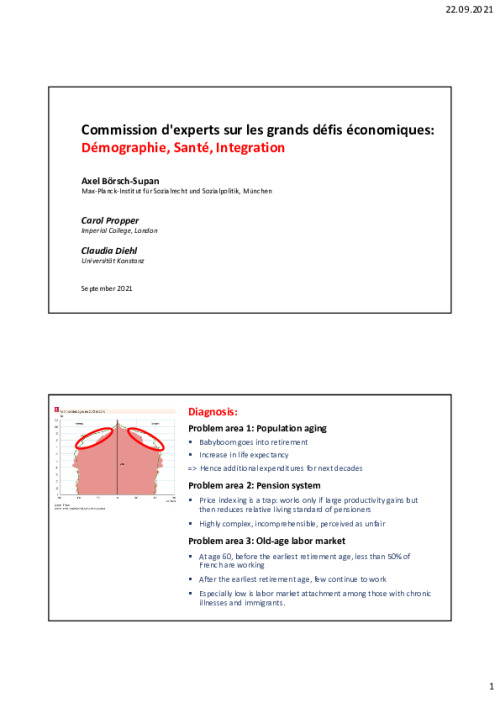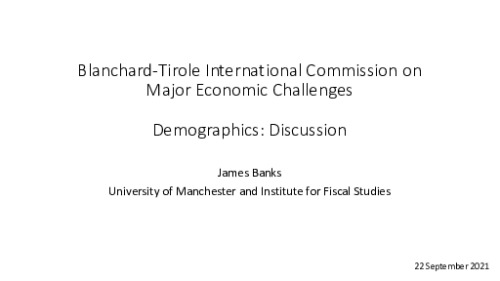In early 2020, Emmanuel Macron established a commission of renowned international experts to analyse the major economic challenges facing France and other similar economies. The commission recently published their report, "The Major Future Economic Challenges", outlining key recommendations that would allow countries to respond more effectively to these challenges. The chairs of the commission, Professors Jean Tirole and Olivier Blanchard, presented the commission's report at an IFS event in July.
At this event, presenters focused in more detail on one of the long term structural economic challenges identified by the report: demographic change.
"Aging, and aging in good health are good news, indeed major societal achievements. Yet, they require adjustments in the way life is organized, the main one being maintaining the right balance between work and retirement. To keep the retirement system in balance, a longer life expectancy requires either a decrease in benefits, or an increase in contributions, or else a higher retirement age."
-The Major Future Economic Challenges
The authors of this chapter of the report, Axel Börsch-Supan, Director of the Max Planck Institute for Social Law and Social Policy, Claudia Diehl, Professor of Sociology and Co-Speaker of the Cluster of Excellence "The Politics of Inequality", and Carol Propper, Professor of Economics at the Imperial College Business School, presented their proposals to address demographic change through the implementation of a transparent and redistributive pension system that allows for individual flexibility and adaption to working conditions, supported by changes to the healthcare system and the employment of immigrants. They were then joined by James Banks (IFS) and Lucinda Platt (LSE) and discussed how these proposals apply to the UK, and answered questions on the topic.











